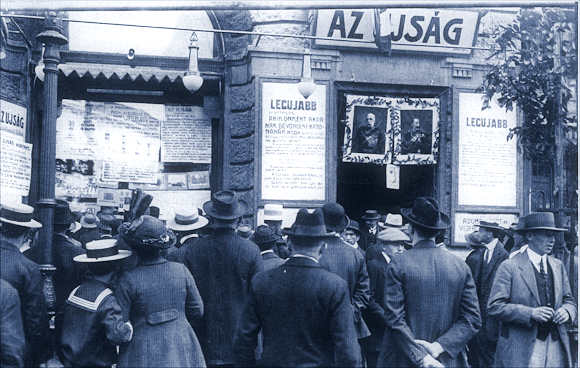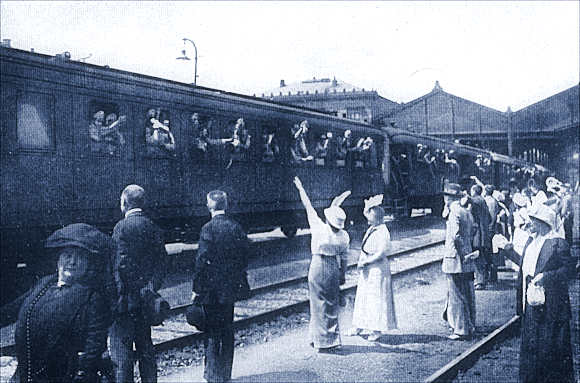 |
| Franz Josef Reviews a Regiment Before the War |
Historian Alexander Watson argues that the governments of Germany and Austria-Hungary started the war with different levels of preparedness and approaches to public support for the war. The two states’ techniques for mobilizing their armies and civilian populations in 1914 had consequences for not only their conduct of the war but also the outcome of the revolutions that followed from their defeat in 1918. The German government relied on popular enthusiasm as symbolized by the Burgfrieden, a political compromise between all the political parties in the Reichstag, including the Social Democrats.
 |
| The Empire's Citizens Learn of War |
The leaders of the Dual Monarchy, in contrast, were suspicious of popular mobilization. Their prewar plans eschewed civilian participation in favor of military control. Franz Joseph refused to recall the Austrian Reichsrat to cast a vote in support of the war. Instead, the Austrian Parliament building was turned into a military hospital. The Habsburg leaders came to embrace civilian mobilization along national and ethnic lines. This decision haunted them in the last years of the war. By 1918, the nationalities' support for the dynasty had flagged because of chronic food shortages and the political stalemate over constitutional reforms in both halves of the Dual Monarchy.
 |
| Soldiers Departing for the Front |
(From Matthew Lungerhausen's review of Ring of Steel: Germany and Austria-Hungary in WWI on H-Net)

Turning the Parliament into a hospital - wow! What a statement.
ReplyDeleteHow is Ring of Steel? Have we reviewed it yet?